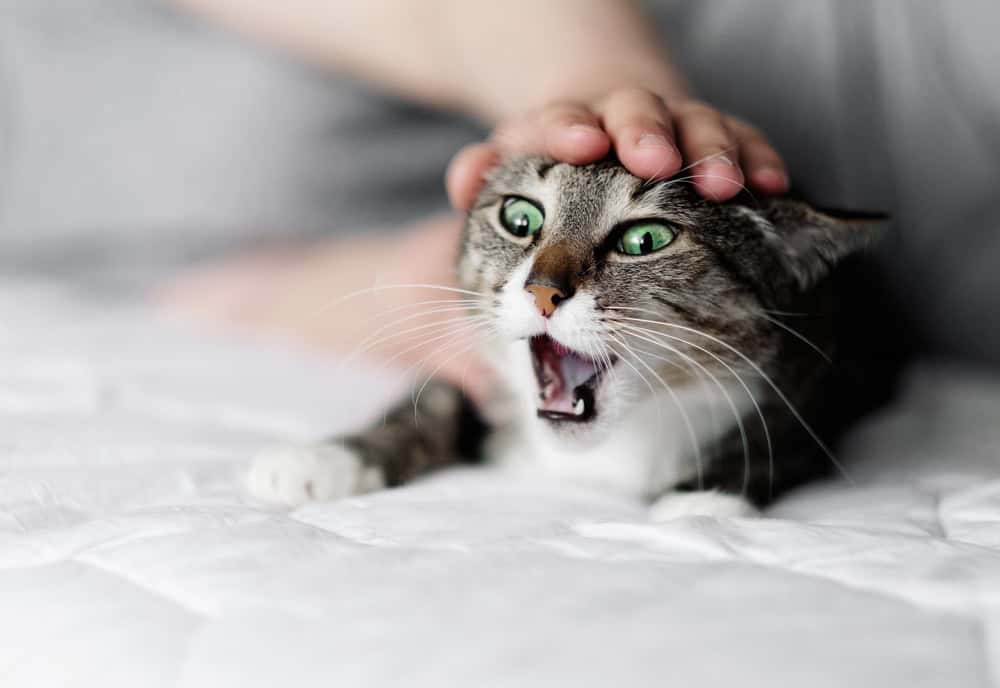We love our pets, and there is nothing we wouldn’t do for them. However, they can’t tell us that they don’t feel well. Also, thanks to an age-old survival instinct, pets often hide signs of illness and discomfort. Therefore, pet owners must be able to recognize that their pet has a problem, the earlier the better, because immediate action can be vital.
Aberdeen Veterinary Clinic has your pet’s best interests at heart, and we want to detect illness and disease early, provide effective treatment quickly, help them feel better, and improve their quality of life as soon as possible. That’s why our focus is on the following six pet health signs that pet owners should never ignore.
1: Your pet’s weight or appetite has changed
Gradual weight loss or gain may not be concerning, especially if you and your veterinarian have been working to help your pet lose or gain weight. However, if your pet is suddenly ravenously hungry, won’t eat at all, or suddenly loses or gains weight for no apparent reason, you must seek veterinary advice. Sudden weight loss or gain may be the result of a severe health issue, such as dental disease, metabolic disease, or digestive problems. Some dogs with an upset stomach may self-regulate and not eat for a few days, but cats who don’t eat put themselves at risk for a life-threatening health condition called hepatic lipidosis.
2: Your pet drinks or urinates excessively
Increased thirst and urination can be the first signs of many health concerns, including diabetes, Cushing’s disease, kidney disease, or a urinary tract infection (UTI). Monitor your pet’s bathroom habits and look for dark, cloudy, or bloody urine, which can signal a UTI. Straining in the litter box or urinating outside the litter box can also signal a UTI, while colorless urine may indicate a kidney function issue. Ensure pets always have fresh water and a clean litter box.
3: Your pet’s breathing changes
Breathing trouble is never a good sign, so if your pet is wheezing, coughing, or having breathing difficulty, don’t hesitate to seek veterinary attention. Breathing issues can indicate asthma, allergies, trauma, or heart disease. Monitor your pet’s environment and avoid exposure to smoke, pollutants, pollen, and toxic chemicals.
4: Your pet is lethargic or weak
Your pet should always appear alert, bright, and attentive. Lethargy (i.e., extreme tiredness, lack of interest in food, treats, or play) on its own may not indicate a severe problem, but many health issues include lethargy as a sign, and you should pay attention to any other accompanying issues. Problems may include pain, toxicity, cancer, organ disease, hypothyroidism, heartworm disease, and arthritis, so you should seek immediate veterinary advice. Depending on the severity and other signs, your pet may need to see an emergency clinic veterinarian or your regular veterinarian.
5: Your pet is vomiting excessively
Occasional vomiting in pets may not be concerning, but excessive vomiting can indicate gastrointestinal (GI) issues, food intolerance, organ disease, or infection. Monitor the frequency and timing of your pet’s vomiting to pass on to your veterinarian. Limit table scraps and prevent your pet from accessing garbage or household toxins to prevent a GI upset.
6: Your pet’s behavior has changed

Your pet’s behavior can be one of their more obvious health indicators. Pets are creatures of habit, and any deviation from their routine should not be ignored. Significant changes in social interaction, anxiety, vocalization, withdrawal, or aggression may indicate pain, disease, or stress, and your pet should be checked by your veterinarian, who will rule out any medical issues before considering why their behavior has changed.
Paying close attention to your pet can increase their longevity and quality of life, but you must know what to look for and be prepared to act immediately, so your pet can be treated as quickly as possible and feel better faster. Your Aberdeen Veterinary Clinic team is always ready to answer your questions and provide guidance about your pet’s health, particularly when you are concerned about whether or not they need our care.

